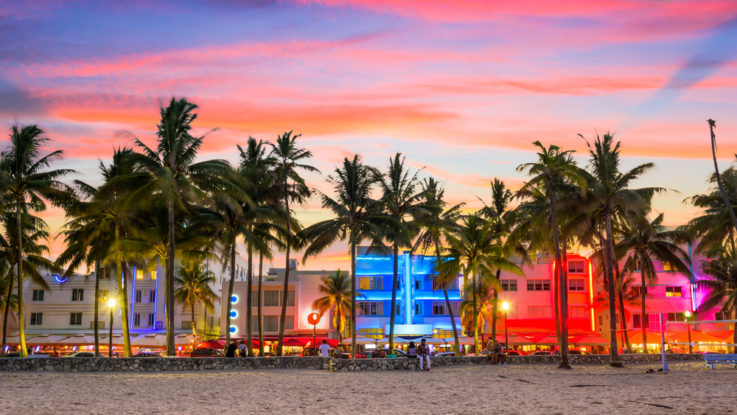
The City of Miami has earned the Leadership in Energy and Environmental Design (LEED) Gold certification for its sustainability initiatives. The LEED award was created by the US Green Building Council (USGBC). It enables cities to measure and track outcomes that are evaluated against key metrics that include: energy, water, waste, transportation, education, health, safety, prosperity, and equitability.
“As a community uniquely vulnerable to climate change, we are working aggressively to build a more resilient Miami-Dade and lessen our contributions to global warming,” said Miami-Dade County Mayor Daniella Levine Cava. “We’re proud to be recognized as a LEED Gold certified community – affirmation that we’re setting the example for a low-carbon and resilient future while increasing quality of life for our residents.”
When being assessed for the Gold certification, Miami received credits for initiatives in the following categories:
- resilience planning – the city has identified its climate vulnerabilities and has taken a holistic approach to addressing these threats through the development of citywide plans, including the Comprehensive Emergency Management Plan, Miami Forever Climate Ready, and the City’s Strategic Plan;
- green building policy and incentives – green building design is encouraged by expediting review of LEED projects and – through Miami21 – provides density and height bonuses for projects that contribute to the public benefits program;
- environmental justice – toxic soils were successfully removed from seven city parks, thus mitigating a human health risk;
- innovation and equity – the city implements community building programs such as the Opioid Pre-Arrest Diversion Program, the Children’s Savings Accounts Program, offering participation on the Climate Resilience Committee, and participates in Tree City USA;
- green spaces – 87% of residents live within a 10-minute walk of a park, as compared to the national average of 55%;
- alternative fuel vehicles – to encourage the adoption of electric vehicles, the city passed an ordinance requiring 20% of new off-street parking to be EV capable and is also working with Florida Power and Light to install EV chargers at city parks; and
- regional priority – Miami participates in collaborative, regional scale climate action through collective impact initiatives such as: Resilient305; the Building Efficiency 305 programme; and the Southeast Florida Regional Climate Compact.
“Miami continues to lead the way as the most sustainable city in the world,” said Francis Suarez, mayor of Miami. “We have pledged carbon neutrality by 2050, and our buildings will play a big role in achieving this feat. Our resilience planning ensures that all buildings comply with the highest sustainability standards and being named a LEED Gold city is indicative that we are on the right track to building a Miami ‘that lasts forever and works for everyone’.”